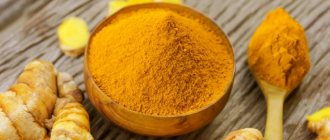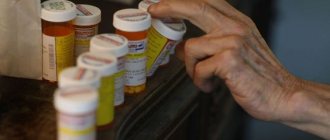Daily therapy with acetylsalicylic acid can be a lifeline and reduce the risk of heart attack. But taking an aspirin tablet daily is not a therapy for everyone. Let's try to figure out whether you need it?
If you've had a heart attack or stroke, your doctor has probably recommended that you take aspirin daily. If you are at high risk of having a heart attack, your doctor may recommend aspirin after weighing the risks and benefits. Although taking 1 or 2 aspirin tablets for headaches, chills, or joint pain is safe for most adults, taking aspirin daily on your own can have serious side effects, including internal bleeding.
How can aspirin prevent a heart attack?
Aspirin prevents blood clotting. When bleeding, special blood cells - platelets - seal the hole in the blood vessel and stop the bleeding.
Similar processes involving platelets can also occur in the vessels that supply the heart with blood. If the coronary vessels are affected by atherosclerosis, a blood clot may form in the area where atherosclerotic plaques form. If a clot blocks an artery, blood will stop flowing to the heart. This will cause a heart attack. Aspirin reduces the ability of platelets to stick together and form a blood clot. And therefore can prevent a heart attack.
Your doctor may suggest daily therapy with acetylsalicylic acid if:
- Have you already had a heart attack or stroke?
- You have not had a heart attack, but you have had coronary artery bypass surgery, or have chest pain due to coronary artery disease (angina), or have a stent placed in a coronary artery
- You are at high risk of having a heart attack if you have at least 2 of the following 4 symptoms: diabetes, age over 50, high blood pressure, and a smoker.
Prophylactic aspirin is indicated for people aged 50 to 59 years if there is no risk of bleeding and if the person has a greater than 10% risk of heart attack or stroke within the next 10 years. For adults younger than 50 years and older than 60 years, more research is needed to determine the benefits and risks of daily aspirin therapy.
Today, there is ongoing debate about the benefits of aspirin for people who have not had a history of a heart attack. But most experts agree that the higher your risk of developing a heart attack, the greater the chance that the benefits of taking a daily aspirin tablet will outweigh the harm of developing complications from aspirin therapy.
Interaction with other drugs
If you regularly take aspirin, it is important to consult your doctor about possible drug interactions with other medications, vitamins, or dietary supplements.
The way aspirin works can be affected by:
- arthritis medications
- medications to treat symptoms of chronic gout
- drugs to normalize blood pressure
- medications that thin the blood and fight blood clots
- steroids
- anticonvulsants
Some people are more sensitive to complications associated with long-term use of aspirin. For this reason, they should not take this drug daily, especially in large quantities. People at risk of developing complications include people who suffer from the following diseases:
- heart failure
- kidney and liver diseases
- asthma
- stomach ulcers
- bleeding, bleeding disorders, blood clots
- uncontrolled hypertension
- diabetes
People who are allergic to aspirin or other NSAIDs, and people who have asthma with nasal polyps and rhinitis should never take aspirin. An allergic reaction to aspirin typically results in a rash, facial swelling, wheezing, and even anaphylactic shock.
It should also be avoided if you drink more than three alcoholic drinks a day. The medicine is not recommended for women during pregnancy and breastfeeding without a doctor's recommendation.
What is functional soda?
Aspirin dose
Depending on your indication, your doctor will help you find the right dose of acetylsalicylic acid for you.
As a rule, no more than 85 mg of acetylsalicylic acid per day is prescribed for daily preventive use, but in some cases individual dosage is possible. For people who have had a heart attack or have a stent in a coronary artery, it is very important to take aspirin and other blood thinning medications exactly as your doctor recommends. For them, stopping daily therapy with acetylsalicylic acid can have life-threatening consequences: provoke the development of a blood clot and lead to a heart attack. For such people, taking any medications that reduce the effectiveness of acetylsalicylic acid must be agreed with their doctor.
When taking aspirin daily, you should be careful when taking other non-steroidal anti-inflammatory drugs (NSAIDs): ibuprofen, diclofenac, indomethacin, etc. Regular use of NSAIDs may increase the risk of bleeding.
If you need a single dose of ibuprofen, take it two hours after the aspirin. If you need to take ibuprofen or other NSAIDs long-term, talk to your doctor about alternative medications that will not interfere with your daily acetylsalicylic acid therapy.
Aspirin: benefit or harm
Surgical department No. 2 (city center for gastroduodenal bleeding of ulcerative etiology), surgeon Konkin D.K.
Aspirin (acetylsalicylic acid) is one of the most famous and common medicines. About 80 billion aspirin tablets are consumed worldwide every year.
It all started when, on June 23, 1971, British pharmacologist John Vane published his research on the mechanism of action of acetylsalicylic acid in the article “Inhibition of prostaglandin synthesis as a mechanism of action of aspirin-like drugs,” aspirin began to be used throughout the world for the prevention of cardiovascular diseases. Wayne found that acetylsalicylic acid slows down the production of prostaglandins and thromboxane A2 in platelets, which determines its antithrombotic and cardioprotective effect, which was subsequently convincingly proven in many large studies and meta-analyses.
It has become obvious that long-term use of this drug in low doses can be used to reduce the risk of thrombosis, including in the coronary and cerebral arteries, which significantly reduces the risk of developing heart attacks, ischemic strokes and other cardiovascular problems. In 1982, Vane was awarded the Nobel Prize for this revolutionary discovery, and Queen Elizabeth II of Great Britain knighted him. Very quickly, the antiplatelet (“blood-thinning”) effect of the drug overshadowed its anti-inflammatory properties, and at present, the prevention of thrombosis is the only practically justified use of this drug.
By “thinning” the blood, aspirin not only prevents blood clots, but also increases bleeding, which makes its use as an antipyretic dangerous in the case of many infectious diseases (flu, Dengue fever, etc.). Children should not be given aspirin during viral fevers due to the risk of developing the rare but deadly Reye's syndrome. For these reasons, other nonsteroidal anti-inflammatory drugs (NSAIDs) and paracetamol are now preferred to reduce body temperature and control pain and swelling.
Once you reach a certain age or if you have individual risk factors, your doctor may recommend taking daily aspirin in low (50-100 mg) but effective doses to prevent myocardial infarction and other diseases associated with blood clots. Even first aid for myocardial infarction includes chewing one aspirin tablet, which significantly increases the patient’s chances of a favorable outcome.
However, where there is good, there is also evil. A well-known unpleasant side effect of NSAIDs is the induction of ulceration and bleeding in the upper gastrointestinal tract. Alas, even the lowest cardioprotective doses of aspirin increase the risk of bleeding from the upper gastrointestinal tract by 2-3 times - one of the most dangerous complications of peptic ulcer disease.
Now that in developed countries doctors have learned to effectively deal with the main cause of ulcers, the bacterium Helicobacter pylori, and are systematically achieving successful eradication of this microorganism, the main cause of complications of peptic ulcer disease and its recurrence is the widespread use of non-steroidal anti-inflammatory drugs, including low doses of aspirin for prevention cardiovascular diseases.
However, at this point great confusion begins in the minds of the masses. And popular misconceptions have always created fertile ground for unscrupulous extortion of money from patients. So in the case of aspirin, pharmaceutical companies decided to strongly support the myth that stomach ulcers are formed as a result of “burning” the mucous membrane with acetylsalicylic acid, that is, aspirin. The media, with the support of the same pharmaceutical companies, began to broadcast about new medicines that also contain acetylsalicylic acid as an active ingredient, but are less dangerous in terms of the development of complications from the stomach and intestines (Cardiomagnyl, Aspirin Cardio, etc.).
The effect is achieved by adding an enteric coating and magnesium salts, which, according to manufacturers, ensure that the drug passes through the stomach unchanged and begins to be absorbed only in the duodenum. Thus, people began to be told that an aspirin tablet coated with a special coating can completely protect the stomach from the negative effects of acetylsalicylic acid during long-term use. However, in the 1990s, a number of large studies showed that replacing regular aspirin with a cardiac coated aspirin does not provide any particular advantages, since aspirin has its main effect on the body after it enters the blood, and it does not matter where exactly this happens - in stomach, or intestines. It does not have any local irritant effects, and the risk of stomach ulcers is the same when taking any form of the drug. In fact, it doesn’t really matter in what form you take anti-inflammatory drugs - orally, as an injection or as an ointment: the side effects on the stomach are the same.
In order to protect the patient from the development of symptomatic drug-induced gastric and duodenal ulcers, a number of measures have been developed, ranging from early preventive diagnosis and screening examination to preventive drug treatment. According to the manufacturer's instructions, in order to reduce the irritating effect on the stomach, it is recommended to drink aspirin with a weak solution of baking soda or alkaline mineral waters. According to some doctors, you can add a glass of milk or 1-2 tablespoons of cottage cheese to the list. These measures reduce acid production in the stomach in response to the inhibition of certain enzymes responsible for the formation of gastric wall protectors (prostaglandins). It is more rational to take the drug taken after a meal in the first half of the day (not at night) with a sufficient amount of water, at least a glass. For patients taking aspirin-type drugs for a long time, for timely detection of complications, it is necessary to undergo an annual endoscopic examination of the stomach and duodenum, a general blood test and stool test for occult blood. Sometimes the simultaneous use of aspirin and drugs that protect the stomach wall (omeprazole, pantoprazole, etc.) is justified.
Side effects from daily therapy with acetylsalicylic acid
Side effects and complications from taking aspirin include:
- A stroke caused by a burst blood vessel. While taking an aspirin tablet daily may help prevent blood clots and ischemic stroke, aspirin also increases the risk of hemorrhagic stroke, which is caused by a ruptured blood vessel.
- Gastrointestinal bleeding. Daily use of aspirin increases the risk of developing stomach ulcers. And, if you have a bleeding stomach ulcer or bleeding anywhere in your gastrointestinal tract, taking aspirin may increase the bleeding to a life-threatening degree.
- Allergic reactions. If you are allergic to aspirin, any dose of aspirin may cause a serious allergic reaction.
People who take aspirin daily should limit the amount of alcohol they drink because alcohol has a blood-thinning effect, which, together with taking aspirin, can cause stomach ulcers. If you decide to drink alcohol, do so in moderation.
Side effects of aspirin
Kidney failure
A study has found that taking aspirin regularly can lead to kidney damage called analgesic nephropathy. Analgesic nephropathy is a form of chronic kidney failure that occurs with long-term regular use of analgesics such as aspirin.
This disease often begins without visible symptoms, leading to severe kidney failure and the need for daily kidney dialysis.
A 2021 review published in the Korean Journal of Family Medicine found that long-term use of large amounts of aspirin may be associated with kidney failure. The evidence, however, has been mixed, as some studies have not shown a relationship between aspirin abuse and kidney damage. One study, however, found that combining paracetamol and aspirin resulted in greater kidney toxicity than taking aspirin alone.
A study published in the European Journal of Heart Failure found that the effects of aspirin on the kidneys are dose dependent, with aspirin taking more than 80 mg being associated with adverse effects, especially in patients with heart failure.
Liver failure
When aspirin is taken regularly, the drug is absorbed by the liver, which can lead to liver disease or liver failure. This is a very serious disease, since the liver helps eliminate harmful substances from the body. Otherwise, if the liver does not function properly, intoxication occurs.
A 2014 study from Georgetown University Hospital found that drug-related liver damage occurs in an average of 10 out of 100,000 patients. Scientists say that high-dose aspirin can cause hepatotoxicity.
Thus, as a result of treatment with high-dose aspirin, a 41-year-old patient developed acute liver damage, which was eliminated by discontinuation of the drug. This case showed scientists that, despite the lack of information about the effects of aspirin on liver health, the drug can be dangerous in large quantities.
Ulcers
The American College of Gastroenterology states that regularly taking aspirin is the second most common cause of stomach ulcers. This drug causes irritation of the stomach lining and the formation of painful ulcers. Moreover, regular use of aspirin aggravates existing ulcers and can cause complications such as bleeding and perforation of the ulcers.
A study published in the Journal of Multidisciplinary Healthcare indicates that aspirin treatment is one of the leading causes of deterioration in patients with gastrointestinal ulcers. Scientists have found that aspirin and Helicobacter pylori, a bacterium that attacks the stomach, significantly contribute to their development.
Tinnitus and hearing loss
Ringing or tinnitus is a symptom of impaired hearing and damage to the nerves located near the ears. Ringing may be caused by excess aspirin consumption and may indicate intoxication.
According to a systematic review conducted by Harvard Medical School, USA, among patients aged 45 to 79 years who regularly take aspirin, the likelihood of hearing loss is 13-68%.
Scientists have found that 1.95 grams of aspirin per day can significantly impair hearing. They also believe that the side effect is related to the dosage of the drug, and the condition can be improved by stopping the drug.
Hemorrhagic stroke
Although many people take aspirin to thin their blood and prevent heart attack and stroke, this drug can actually make your condition worse in some cases. Sometimes strokes can be caused by bleeding in the brain. In this situation, taking aspirin can make the problem worse and lead to serious brain damage and even death.
Scientists from the University of Illinois, USA, suggest that "the cardiovascular benefits of aspirin must be weighed against the possible risks associated with taking this drug, the most serious of which is hemorrhagic stroke."
Although research suggests that the risk of hemorrhage associated with aspirin use is quite low (0.2 cases per 1,000 patients per year), it should still be listed as a side effect and considered when prescribing aspirin as a measure to prevent heart attacks. and strokes.
Reye's syndrome
Reye's syndrome is a fatal disease that affects vital organs in children, mainly the brain and liver. The study showed that Reye's syndrome is quite rare, but the likelihood of death is very high (about 30-40% of cases lead to death as a result of brain stem dysfunction).
This disease typically occurs in children and adolescents recovering from the flu or chickenpox, and aspirin has been linked to the development of Reye's syndrome.
Scientists believe that the drug may act as a contributing factor in susceptible patients. For this reason, children and teenagers with viral infections should never take aspirin.
A study published in the journal Drug Safety suggests that the severity of the disease may depend on the dosage of aspirin. And in the case of taking aspirin during a viral infection, this drug, in principle, cannot be called safe.
Drug interactions with daily aspirin therapy
The combination of taking aspirin with anticoagulants can significantly increase the risk of serious hemorrhagic complications. Such concomitant therapy should be carefully discussed with your doctor.
Some medications may also increase the risk of bleeding. Medicines that may interact with aspirin include:
- Heparin
- Ibuprofen (if taken regularly)
- Corticosteroids
- Clopidogrel
- Some antidepressants (clomipramine, paroxetine, etc.)
Taking certain dietary supplements may also increase the risk of bleeding. These include:
- Blueberry
- Capsaicin
- Cat claw
- Evening primrose oil
- Ginkgo
- Omega-3 fatty acids (fish oil)
In a shell or without?
Coated aspirin tablets are designed to pass through the stomach without disintegrating until they reach the intestines. The protective coating is thought to allow aspirin tablets to be gentler on the stomach lining, and may be useful for people with a history of gastritis or ulcers who take aspirin daily.
However, some researchers believe there is no evidence that coated aspirin reduces the risk of gastrointestinal bleeding. Moreover, there are a number of publications that such aspirin is less effective for preventing heart attacks.









